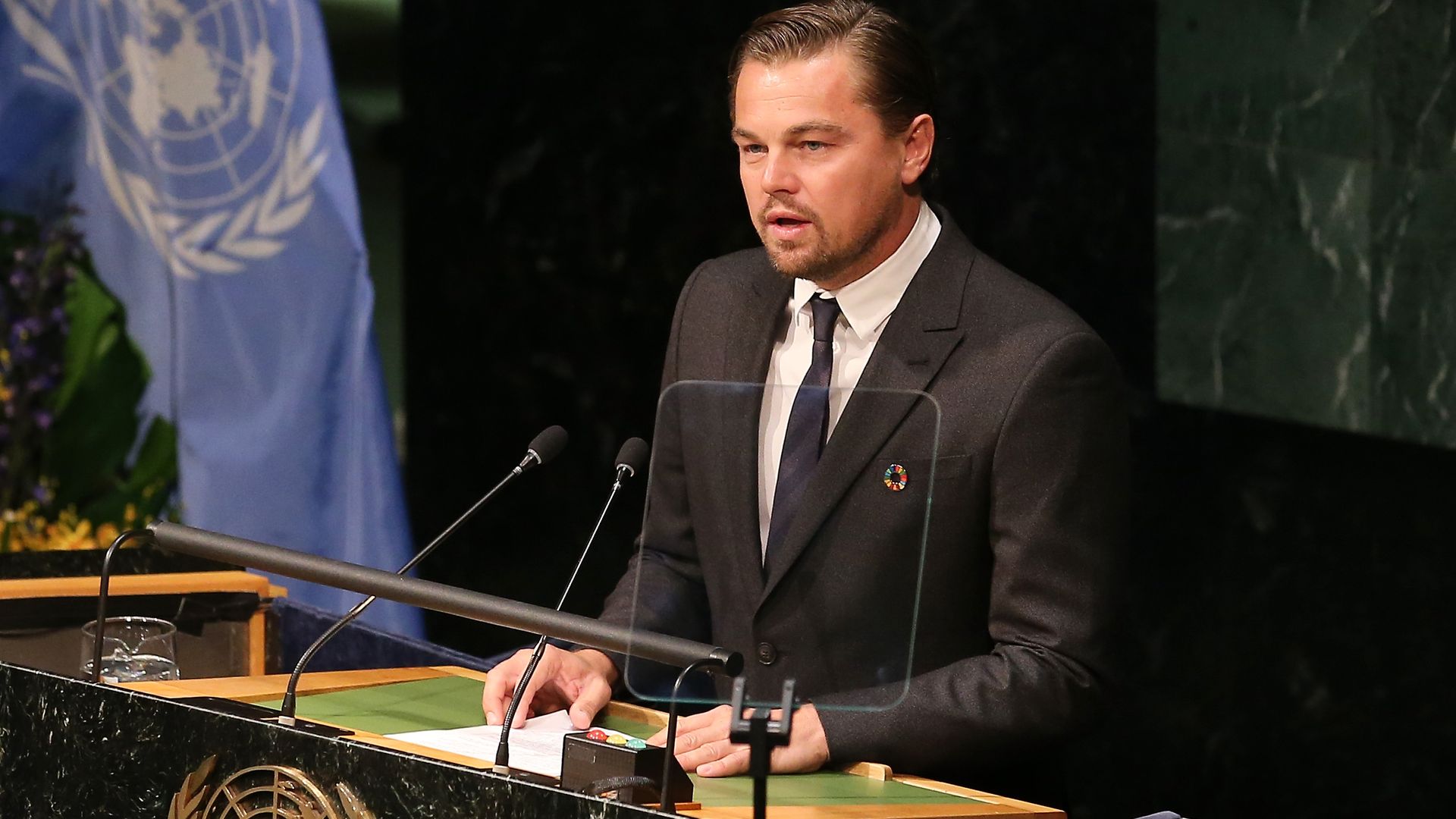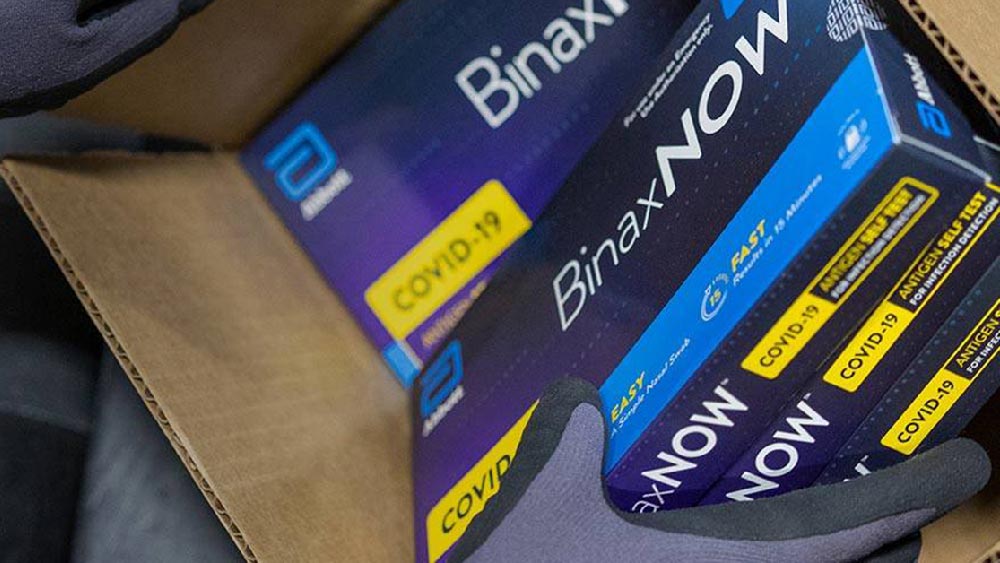| | | | | | | Presented By Abbott | | | | Axios Future | | By Bryan Walsh ·Sep 22, 2021 | | Welcome to Axios Future, brought to you in between house hunting in New York City, a process I recommend to anyone with deeply masochistic tendencies. Today's Smart Brevity count: 1,439 words or about 5 minutes. | | | | | | 1 big thing: Building the future means building more housing |  | | | Illustration: Annelise Capossela/Axios | | | | America's troubled urban housing policies are having negative effects that go far beyond high rents and real estate prices. Why it matters: Decades-old barriers to building more housing in America's most productive cities make it harder to move and live there, which eats into wages, depresses population, saps economic growth, and even worsens climate change. - Whether the U.S. can build a better, more equitable future will depend in large part on whether it can build its way out of its persistent housing problem.
By the numbers: Mortgage payments as a share of income hit 19.4% in June, according to a recent study by Zillow, and are forecast to reach 23.1% by the end of the year, which would be the highest figure on record. - Rent payments as a share of income are forecast to rise from 29.6% in June to 30.2% by December, above the 30% threshold for being considered housing burdened.
- Those national numbers hide an even deeper crisis in pricey, housing-short cities like San Francisco, where one-bedroom apartments rent for a median of $2,800 a month — the second-highest in the country after New York — and the median price for a single-family home is $1.85 million.
The big picture: High housing prices can directly lead to a rise in homelessness, but they also hold back economic growth by making it harder for people — especially those lower on the income scale — to move to more productive metro areas. - 2017 research by economists Chang-Tai Hsieh and Enrico Moretti found the high cost of housing — which they chiefly attribute to local land-use restrictions — reduced wage and GDP growth by 50% over the past 50 years.
- It also cost the average American worker an additional $6,775 in additional annual income.
Background: It wasn't always this way — historically, Americans moved in large numbers to those parts of the country where jobs and opportunities were most abundant. Between the lines: Where you live matters. Everything from wages to health to carbon footprints tends to be significantly better in productive cities, a product of the growing divergence of the U.S. economy over the past few decades. - Today, while high-wage earners can make the move to expensive cities — albeit with housing eating up more of their income — it no longer makes economic sense for low-wage earners to migrate.
- The result is widening inequality — especially for the roughly one-third of Americans who don't own their own dwellings — and less growth and productivity, which makes for a poorer future overall.
The bottom line: While policies like rent relief and subsidies are meant to target demand, high housing prices in productive cities are primarily a supply problem. The rent is too damn high because there isn't enough housing to go around. - The solution could be what New York Times columnist Ezra Klein recently dubbed "supply-side progressivism" — policies focused on increasing the supply of scarce but necessary goods like education and housing, whether through undoing burdensome regulations or new innovations that can bring down the cost of production.
Read the rest |     | | | | | | 2. Leonardo DiCaprio invests in cultivated-meat startups |  | | | DiCaprio addresses the UN at the signing of the Paris Agreement for Climate Change in 2016. Photo: Jemal Countess/Getty Images | | | | Actor and environmentalist Leonardo DiCaprio is investing in a pair of cultivated meat startups and joining their advisory boards. Why it matters: Cultivated meat — which is grown from animal cells — is still in the early stages and has garnered criticism from some greens, but DiCaprio's involvement provides a boost from one of the world's most prominent climate activists. Driving the news: DiCaprio will be investing undisclosed sums in the Dutch startup Mosa Meat, which made the world's first cell-based hamburger, and Israel's Aleph Farms, which produced the first cell-based steak. By the numbers: According to a 2013 report by the UN's Food and Agriculture Organization (FAO), meat and dairy account for 14.5% of global greenhouse gas emissions. What they're saying: DiCaprio's investment "confirms our road map for ushering in a new age of meat production that helps combat climate change and preserve our precious planet," says Didier Toubia, Aleph's CEO and co-founder. Read the rest |     | | | | | | 3. Firms budget more for innovation, but struggle with results |  | | | Illustration: Aïda Amer/Axios | | | | A new survey of large corporations shows the pandemic has driven home the need for innovation, while demonstrating just how hard it is to do. Why it matters: In an exponential age, companies that can keep successfully innovating can reap outsized rewards, while those that fail risk being left permanently behind. What's happening: Software company Wellspring surveyed 300 high-level executives at $1 billion-plus revenue companies in the U.S. and U.K. about how the pandemic affected their innovation operations. - 60% of the respondents reported they expected their corporate innovation budgets were expected to increase out of the pandemic, while just 10% expected budgets to be cut.
- "The pandemic highlighted the need for science," says Robert Lowe, Wellspring's CEO and co-founder. "But there's also a lot of innovation around how companies think about what they do and how they re-engage with customers."
The other side: Companies that reported struggling with innovation tend to lack buy-in at the C-suite level, with broad goals at the top foundering in the face of parochial concerns and day-to-day priorities on the ground level. - That failure can produce an existential threat, says Lowe. "In the past, if you were a major company with large market share, you held onto your distribution channel and it was hard to get around you. That barrier just doesn't exist anymore"
The bottom line: "If you're an innovation laggard in any industry," says Lowe, "the penalty now is far worse." Read the rest |     | | | | | | A message from Abbott | | Redefining what's possible in healthcare | | |  | | | | Abbott has always stood for science, for being obsessed with improving healthcare through technology and developing innovations that allow people to live their best lives. See how Abbott is making the world a better place for billions around the globe. | | | | | | 4. A slight thaw on the icy road to COP26 |  | | | Illustration: Annelise Capossela/Axios | | | | The bad diplomatic vibes heading into the critical United Nations climate summit in Glasgow, Scotland, might be improving slightly, Axios' Ben Geman writes. Catch up fast: Chinese President Xi Jinping yesterday pledged to end overseas financing for building new coal-fired power plants and boost support for clean energy in developing nations. - His move at the UN General Assembly came hours after President Biden proposed to double U.S. climate financial help for developing nations to over $11 billion annually by 2024.
Why it matters: Both moves, while facing uncertainties, could create a dose of momentum heading into the summit that UN Secretary-General António Guterres this week warned is at high risk of failing. - China is the largest public financier of overseas coal plant construction. Chinese officials have faced pressure from the U.S. and other nations to end the practice.
- Meanwhile, developed nations' failure to mobilize a long-promised $100 billion annually by 2020 to help poorer countries fight climate change has created friction in pre-summit talks.
Read the rest |     | | | | | | 5. Worthy of your time | | A Detroit community college professor is fighting Silicon Valley's surveillance machine. People are listening. (Will Oremus — Washington Post) - My former colleague on an innovative way to fight tech-enabled prejudice.
Biological deterrence for the shadow war (Joseph Buccina, Dylan George and Andy Weber — War on the Rocks) - We're not ready for the next stage of biological warfare.
America's car crash epidemic (Marina Bolotnikova — Vox) - U.S. vehicular deaths are an international outlier, and they're reaching a crisis level.
Why does world's tallest populace seem to be getting shorter? (Nicola Davis — The Guardian) - We might not be looking up at the Dutch much longer.
|     | | | | | | 6. Number of the day: 29% |  | | | Police tape outside the home of a shooting victim in Chicago. Photo: Scott Olson/Getty Images | | | | That's the increase in murders in the U.S. between 2019 and 2020, according to preliminary FBI data that was reported today by the New York Times. Why it matters: It's the biggest one-year change since records began being kept in 1960, and it's a clear sign that media reports and anecdotal data about a surge in homicides last year reflected a real and historic trend. What to watch: Early data indicates that murders kept rising in 2021, albeit at a much lower rate than 2020. Context: Even after 2020's spike, the national murder rate is one-third the level of the early 1990s, and overall major crimes outside of homicide fell last year. |     | | | | | | A message from Abbott | | The COVID-19 pandemic isn't done. Neither are we | | |  | | | | With variants present and vaccines rolling out, reliable testing and care remain crucial. Abbott is continuing to offer resources and technologies to fight this still evolving threat, including variants such as Delta. Here's what to know. | | |  | | It'll help you deliver employee communications more effectively. | | | | | | Axios thanks our partners for supporting our newsletters. If you're interested in advertising, learn more here.
Sponsorship has no influence on editorial content. Axios, 3100 Clarendon Blvd, Suite 1300, Arlington VA 22201 | | | You received this email because you signed up for newsletters from Axios.
Change your preferences or unsubscribe here. | | | Was this email forwarded to you?
Sign up now to get Axios in your inbox. | | | | Follow Axios on social media:    | | | | | |










No comments:
Post a Comment